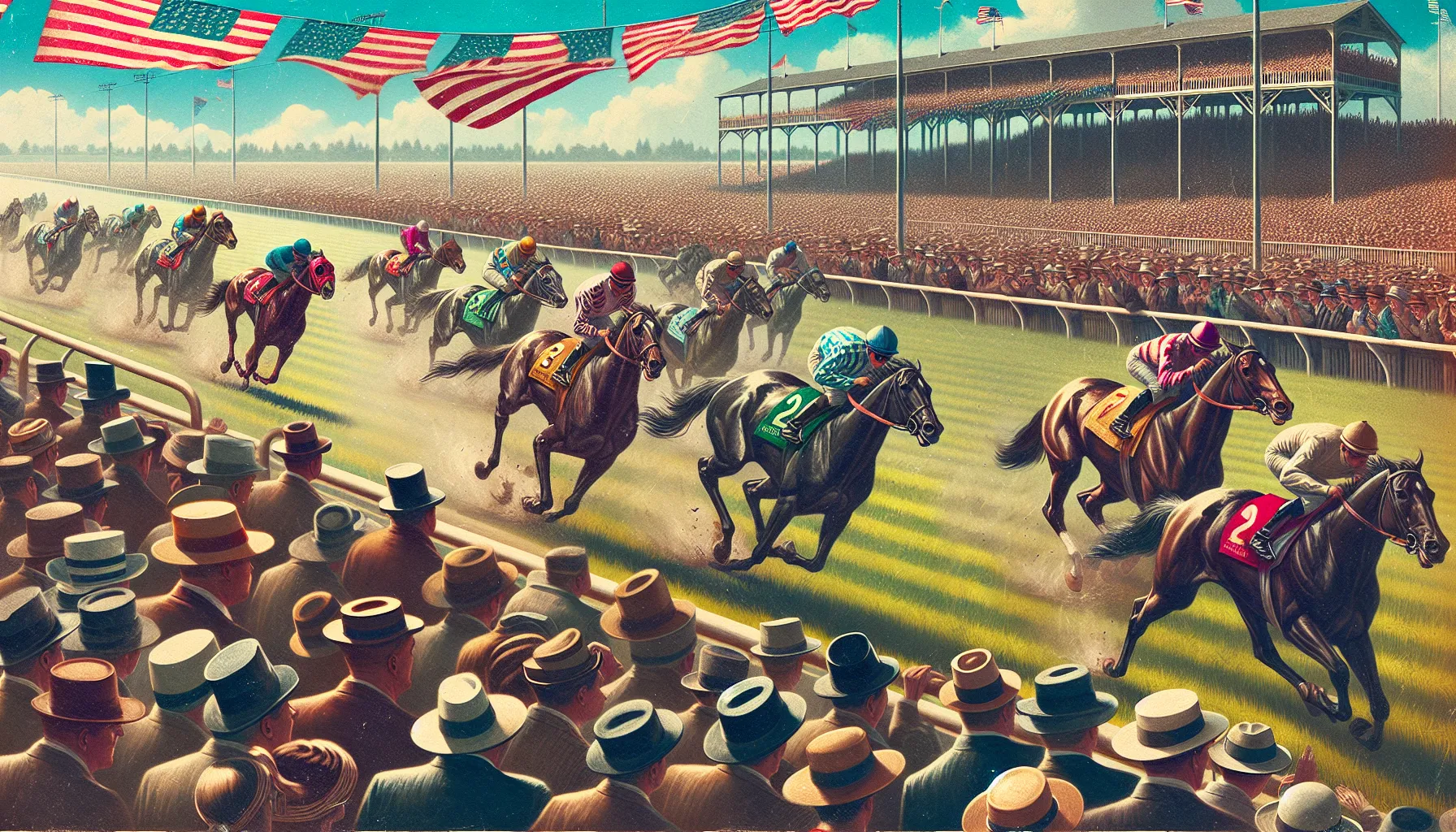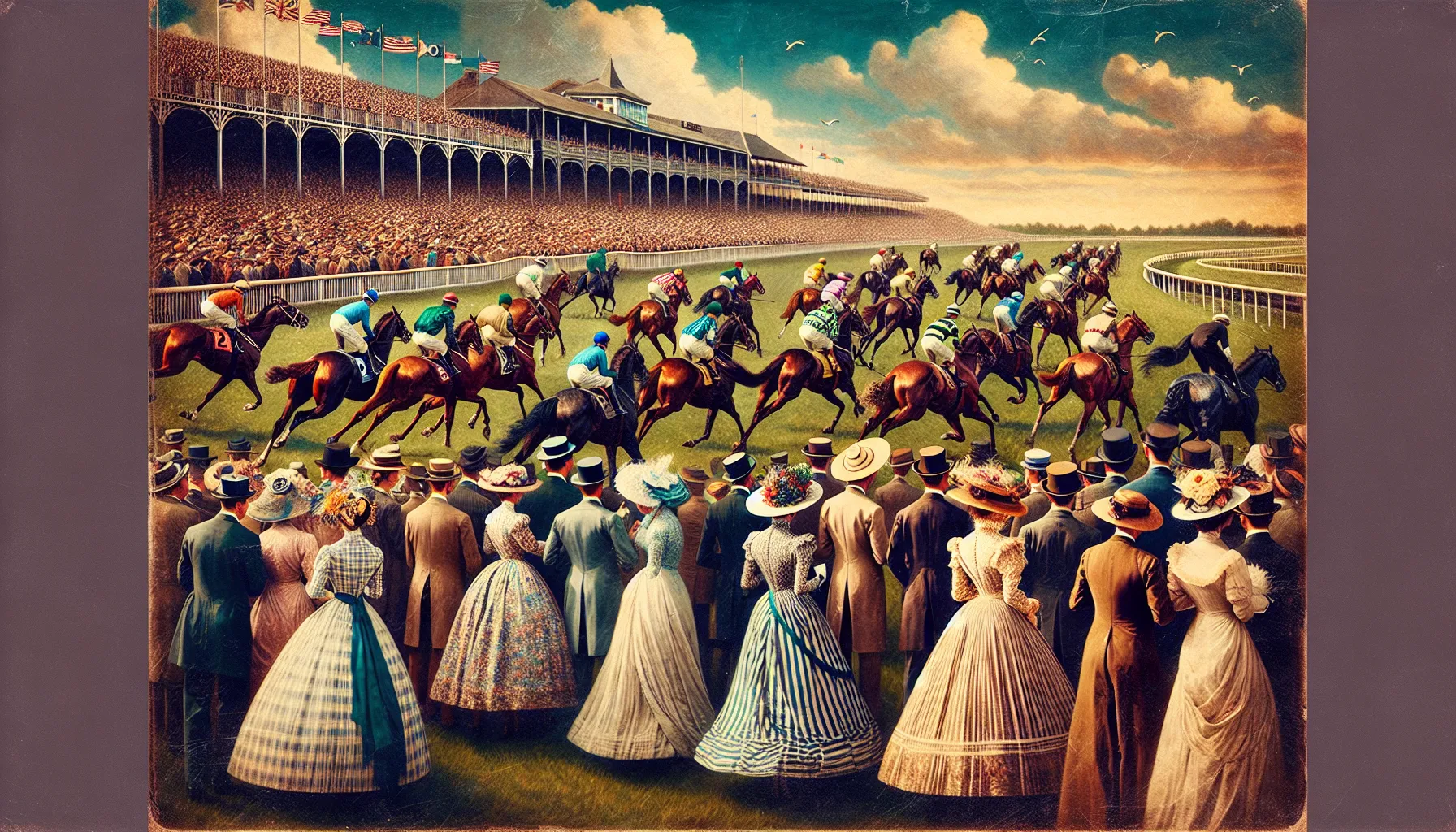Horse racing has captured the hearts of millions worldwide, but it’s not just the thrill of the race that keeps people coming back—it’s the high-stakes betting that makes it even more exciting. From grand arenas to local tracks, the sport has become a global phenomenon, with some countries going all in when it comes to wagering on their favorite horses.
You might wonder which nation leads the pack in horse racing bets. Is it a country with a deep-rooted love for the sport or one with a culture of high-risk gambling? The answer reveals fascinating insights into how different regions embrace this age-old tradition and how much they’re willing to stake for the win.
Overview Of Horse Racing And Betting
Horse racing is one of the oldest organized sports, blending athletic performance with gambling. Its origins trace back over 2,000 years, spanning civilizations like Ancient Greece, Rome, and Egypt. Modern horse racing evolved during the 17th century in England, shaping the sport’s structure and wagering systems.
Betting forms a fundamental part of horse racing’s appeal. Fans place wagers on race outcomes, with common types including win, place, and exotic bets like trifectas or exactas. Major events like the Kentucky Derby in the US, the Melbourne Cup in Australia, and the Royal Ascot in the UK amplify betting volumes globally.
Countries regulate horse race betting differently, affecting total wagers. Some nations legalize parimutuel betting, where winnings pool from placed bets. Others embrace fixed-odds betting, where potential rewards depend on set odds. National betting preferences often align with cultural norms and legal frameworks.
Horse racing stands out as a sport where wagering fuels both fan engagement and industry growth across continents.
History Of Horse Racing Bets Worldwide

Horse racing betting has a rich history that aligns with the evolution of the sport itself. Ancient civilizations, such as those in Greece, Rome, and Egypt, held early forms of horse racing events where wagers were made informally. These early bets were often between individuals rather than structured systems.
In medieval Europe, betting on horse racing gained popularity among the aristocracy. The emergence of organized racing in 17th century England, particularly during the reign of King Charles II, marked a turning point. Systematic betting rules and practices began forming as horse racing grew in prominence. The development of professional jockey clubs and racecourses also streamlined betting operations.
By the 18th and 19th centuries, horse racing and its associated betting culture expanded to other continents. Countries like France, the United States, and Australia built their unique betting structures. Pari-mutuel systems, introduced in France in the late 19th century, became a global benchmark for regulated betting. This system pooled all bets together, dividing the winnings proportionally among the winners after deducting costs and taxes.
In the 20th century, technological advances transformed horse race betting. Televised races, followed by online platforms, brought global accessibility. These improvements impacted the volume of bets placed and created new wagering options, including in-play bets and accumulators.
Top Countries Known For Horse Racing Betting

Several nations are renowned for their passionate horse racing culture and significant betting volumes. Each country’s unique approach reflects its history, traditions, and regulations around horse racing wagering.
United Kingdom
The United Kingdom remains a global leader in horse racing betting. Annual wagering surpasses £12.1 billion across events like the Grand National and Royal Ascot. A long history of regulated betting, dating back to the 18th century, shaped its highly developed systems. You find fixed-odds betting prevalent, with online platforms playing a crucial role in its continued growth.
United States
The United States generates over $11 billion annually in horse racing bets. Events like the Kentucky Derby and Breeders’ Cup attract millions in wagers. The pari-mutuel betting system is dominant. State-level regulations drive varying betting structures, with notable hubs like Kentucky, California, and New York hosting major races.
Australia
Australia is another betting powerhouse, with over AUD 14 billion ($9 billion) wagered annually on horse racing. Events like the Melbourne Cup, often called “the race that stops a nation,” contribute to its appeal. Online sportsbooks and advanced mobile apps ensure ongoing accessibility for Australian bettors.
Japan
Japan’s horse racing betting market is one of the world’s largest, generating around ¥3 trillion ($21 billion) yearly. The Japan Racing Association (JRA) ensures regulated operations for events like the Arima Kinen and Japan Cup. Enthusiasts predominantly engage in pari-mutuel betting, supported by extensive technological infrastructure.
Hong Kong
Although small in size, Hong Kong boasts immense betting volumes, exceeding HK$136 billion ($17 billion) per year. The Hong Kong Jockey Club oversees all wagering activity, maintaining high transparency. Races at the Sha Tin and Happy Valley Racecourses draw international attention, further solidifying Hong Kong’s reputation.
Factors That Influence Betting Popularity

Multiple elements shape the prevalence of horse race betting across nations. These factors include cultural importance, government regulations, and the availability of appealing prize pools.
Cultural Significance
Cultural norms significantly impact horse race betting’s popularity. In the UK, horse racing is deeply rooted in traditions, with events like the Grand National drawing millions annually. Japan combines cultural reverence for precision with legal efficiencies, resulting in some of the world’s highest betting volumes. In contrast, countries with limited horse racing history often experience less interest in wagering on the sport.
Legal Framework And Regulations
Government policies determine the scale of betting. In Hong Kong, stringent regulation boosts transparency, driving significant legal betting volumes through the Hong Kong Jockey Club. Meanwhile, in the United States, state-specific betting laws create varied wagering environments, from thriving betting scenes in Kentucky to restricted activity in others. Countries like Australia prioritize regulated online betting, ensuring widespread accessibility while maintaining oversight.
Prize Pools And Accessibility
Larger prize pools, alongside accessible wagering options, attract higher betting participation. Events like the Melbourne Cup and Japan Cup offer enormous payouts, boosting engagement. In technologically advanced regions, online platforms enhance accessibility, enabling bettors in Japan or Australia to place bets seamlessly without attending the races. Conversely, limited prize incentives or poor accessibility hinder betting in regions with fewer resources.
Statistics: Which Country Bets The Most On Horse Racing?
Data from multiple sources highlights the dominance of several countries in horse racing betting. The United Kingdom leads global markets with annual wagers exceeding £12.1 billion, driven by iconic events like the Cheltenham Festival, Epsom Derby, and Royal Ascot. These events attract both domestic and international bettors, reflecting the UK’s deep-rooted horse racing culture.
Japan generates staggering betting volumes of approximately ¥3 trillion annually. The Japan Racing Association (JRA) meticulously organizes races, ensuring reliability and driving nationwide participation. Races like the Japan Cup significantly contribute to these figures, drawing millions of bets.
The United States reports yearly betting revenues surpassing $11 billion, fueled by major events like the Kentucky Derby, Belmont Stakes, and Breeders’ Cup. The U.S. betting landscape features a mix of on-track, off-track, and online wagering, catering to diverse preferences.
Australia boasts over AUD 14 billion in annual wagers, with the Melbourne Cup alone accounting for a substantial share. The nation’s passion for spring carnivals and online betting platforms enhances its international reputation as a horse racing hub.
Hong Kong, despite its size, produces immense betting volumes, exceeding HK$136 billion annually. The Hong Kong Jockey Club monopolizes and regulates the industry, creating a secure and transparent environment that attracts heavy wagering on races like the Hong Kong Derby and the International Races.
France and Ireland also contribute significantly to global figures, with annual bets reaching billions in euros. Events like Prix de l’Arc de Triomphe in France and Irish Champions Weekend underscore these countries’ historical commitment to horse racing and wagering culture.
The statistics underline regional distinctions in betting practices, shaped by cultural traditions, regulatory systems, and the scale of local horse racing events.
Potential Future Trends In Horse Racing Betting
Advancing technology continues to shape horse racing betting. You can expect greater integration of artificial intelligence (AI) to enhance predictive analytics, helping bettors analyze performance metrics and improve wager accuracy. Blockchain technology might also become more prominent, offering secure, transparent transactions and reducing fraudulent practices in betting systems.
Expanding digital platforms is increasing access for global participants. With mobile apps and online betting portals becoming more user-friendly, you can see younger demographics engaging in horse racing betting, which could broaden the sport’s fan base. Live-streaming capabilities might further enhance user experience by offering real-time insights and interactive features, such as in-play betting.
Regulatory changes are likely to influence betting behaviors. Countries could revise gambling laws to incorporate stricter controls or expand legal betting markets, affecting participation and revenue streams. If nations adopt universal frameworks for fair play and taxation, international betting pools could see significant growth.
Incorporating eSports-like features could modernize betting formats. Gamified betting systems and virtual horse race simulations may attract tech-savvy audiences looking for innovative engagement options. These developments could redefine how enthusiasts perceive and participate in horse race wagering.
Sustainability initiatives may play a role in the future. As awareness grows about environmental and ethical concerns in horse racing, you could see betting organizations investing in green practices and promoting equine welfare to enhance public confidence and maintain long-term viability.
Conclusion
Horse racing betting continues to captivate audiences worldwide, blending rich traditions with modern innovations. Each country’s unique approach reflects its cultural identity, regulatory framework, and passion for the sport. As technology reshapes the betting landscape, opportunities for global participation are expanding, offering exciting possibilities for the future of horse racing wagering. Whether you’re drawn to the thrill of the races or the strategy behind the bets, horse racing remains a dynamic and evolving global phenomenon.
Frequently Asked Questions
What makes horse racing globally appealing?
Horse racing appeals to fans due to its thrilling competition, long-standing history, and high-stakes betting. The sport’s cultural significance and major events like the Kentucky Derby and Royal Ascot amplify its global popularity.
When did horse racing betting begin?
Horse racing betting dates back to ancient civilizations like Greece and Rome over 2,000 years ago. However, organized betting with rules became prominent in 17th century England alongside the establishment of professional jockey clubs.
How does betting work in horse racing?
Betting in horse racing involves placing wagers on a horse’s performance. Popular bet types include “win,” “place,” and “exotics.” Odds determine payouts, with regulations varying by country.
Which countries lead in horse race betting?
The United Kingdom, Japan, the United States, Australia, and Hong Kong lead globally in betting volumes. Each country has unique traditions and regulatory systems that influence wager amounts and participation.
What is the role of technology in modern horse race betting?
Technology has revolutionized horse race betting, with online platforms, live-streaming, and predictive analytics making betting more accessible. Blockchain and AI are also shaping the future of secure and efficient betting.
Why is horse race betting highly regulated?
Regulations ensure fair play, prevent fraud, and promote transparency. Countries like Hong Kong and Japan have strict rules to maintain public confidence, while others, like the US, have varied state laws affecting betting practices.
What are the largest horse racing events for betting?
Events like the Kentucky Derby (US), Melbourne Cup (Australia), Grand National (UK), and Prix de l’Arc de Triomphe (France) attract massive global betting participation due to their prestige and prize pools.
How are cultural norms tied to horse race betting?
Cultural norms heavily influence betting practices. For example, the UK has deep horse racing traditions, while Japan integrates legal efficiency and reverence for the sport, driving high engagement.
What are “exotic bets” in horse racing?
Exotic bets involve wagering on multiple outcomes, such as predicting the exact order of finishers (“exacta”) or other complex results. These bets often offer higher payouts but carry a greater risk.
How has horse racing betting evolved over time?
Betting started informally in ancient times, became organized in 17th century England, and expanded globally throughout the 18th and 19th centuries. Technological advances in the 20th century further transformed the wagering landscape.
What future trends may shape horse race betting?
Future trends include integrating AI for analytics, blockchain for secure transactions, and gamified platforms to attract younger audiences. Sustainability efforts and changes in gambling laws may also reshape the industry.
